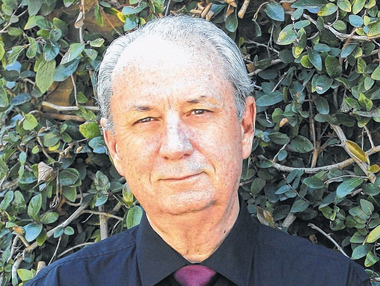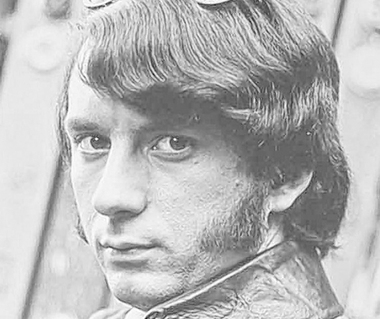Michael Nesmith on songwriting, the Monkees …and Asbury Park
The Star-Ledger By Mark Voger
on November 08, 2013 at 9:50 PM, updated November 08, 2013 at 10:08 PM
The career of Michael Nesmith is marked by firsts. He was a pioneer in blending rock and country; he is called the father of the music video; and, hey, hey, he was a Monkee — a member of the first rock band with its own prime-time series.
michael-nesmith.jpg”I was wrapped up in music from the moment I discovered it,” says Michael Nesmith.
This gave Nesmith a unique opportunity to have his music heard by a huge audience — in living rooms, as well as on turntables and radio.
After leaving the Monkees in 1970, Nesmith had been less inclined to participate in reunions than fellow founders Davy Jones, Micky Dolenz and Peter Tork. But since Jones’ death last year, Nesmith has rejoined the Monkees on tour, and solo tours have followed.
Nesmith is set to perform Tuesday in Englewood. The Houston native, 70, was interviewed by The Star-Ledger via e-mail.
Q. You’ve been doing a lot of roadwork lately. Has it been nourishing? Fun?
A. Nourishing and fun. Exactly.
Q. I won’t use the term “at this age,” but what are you doing to keep fit for touring? Are you naturally gifted, diet- and exercise-wise?
A. I put a little exercise time in every day and I watch my diet — what I eat. But the show itself is a real workout and I don’t need much else to stay fit.
michael-nesmith-monkees.jpgNesmith in the 1960s, when he was a member of the Monkees.
Q. What did you do for fun while growing up in Texas? What music did you listen to?
A. I was wrapped up in music from the moment I discovered it. I went to live music regularly and, when I was 15, got a job in a record store where touring acts would stop by and promote their records — sign autographs and such. The acts that came through were Chuck Berry and Jerry Lee (Lewis) and Little Richard and Fats (Domino) and those early guys — all were kids — and I knew that was where I wanted to be. Bo Diddley was who I listened to most and saw live a few times. Theater came next and then movies. All pretty much along the same path.
Q. What was your first musical instrument?
A. It was a saxophone, and it was the school band, and it was a bad experience. Second was piano, another bad experience, and I almost gave up. Then I got a guitar. That did it for me.
Q. How old were you when you wrote your first song?
A. I don’t remember the first song I wrote — I think it may have been a folksy protest song of sorts about equality and racism — but I can’t remember it exactly. It was during the civil rights movement, so it was just natural to write about and think about that.
Q. Quite a few of your songs are in our collective consciousness, such as “Different Drum” and “Mary, Mary.” Did those early successes bolster you?
A. I don’t know. Probably, but success is such a strange metric. It is so different for everyone. I was never more happy than to hear my songs sung by another. But public acceptance was not so high on the scale of satisfaction for me. I learned it was futile to write in order to please others.
 Q. When you filmed the Monkees TV show, old Hollywood was still in the ether. Your dressing rooms were from the ’30s; sometimes your costumes would be from old movies; you were on the Columbia backlot. Were you a movie buff?
Q. When you filmed the Monkees TV show, old Hollywood was still in the ether. Your dressing rooms were from the ’30s; sometimes your costumes would be from old movies; you were on the Columbia backlot. Were you a movie buff?
A. No, I was a Beatles fan and that meant “A Hard Day’s Night,” and I was right on the same page as the producers who wanted to bring that format to TV. I learned a lot from the environment, but the new technology and the new music were what filled my thoughts.
Q. Frank Zappa appeared on “The Monkees” at your invitation. Please talk about broaching the subject of him appearing, and the idea of you two switching identities.
A. I met Frank socially and we spent some time together. When we (the Monkees) had the opportunity to invite someone (onto the show), he was natural. I liked his work. He said he would do the show, but only if he could be me, and I responded, “You can be me if I can be you.” And so it was.
Q. Do you recall playing Convention Hall in Asbury Park, the Jersey Shore town where Bruce Springsteen honed his craft? Davy once told me Jimi Hendrix opened for you at the 1967 Asbury show. Is that true? Was that tour fun? A drag? A blur?
A. A bit of a blur. I have talked to many stadium acts over the years and all agree, when things get that size, something sets in that makes everything run together in a blur. It is still fun up to a point — but it did not stimulate the artistic in me.
Sadly, I don’t remember Convention Hall — but, of course, I remember Asbury Park. I think Springsteen may have more to do with that memory than actually having been there, however.
(The) Hendrix memory is indelible and a treasure, and yes, he did open for the Monkees. I watched every show hidden in front of the stage where I could see him from just a few feet away.
• MICHAEL NESMITH
When: Tuesday at 8 p.m.
Where: Bergen Performing Arts Center, 30 N. Van Brunt St., Englewood
How much: $49 to $94.25. Call (201) 227-1030 or visit bergenpac.org.
Mark Voger can be reached HERE.
via Michael Nesmith on songwriting, the Monkees … and Asbury Park | NJ.com.
 Follow us
Follow us Join us
Join us


